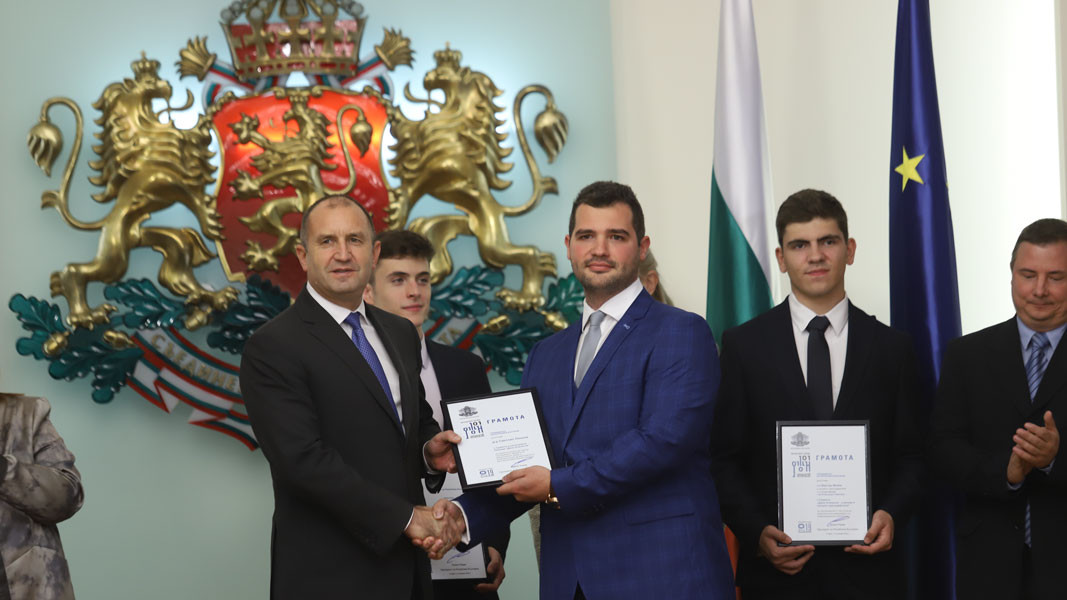For decades, the film industry has been showing our fears of robots that someday might conquer the world. However, we are not very close to the creation of artificial intelligence that has the basic abilities of the complex thought processes of the human brain. Young Bulgarian IT specialist Dr. Svetlin Penkov has directed his work towards the progress of robots in the foreseeable future. He is part of the FiveAI team, the largest startup company for autonomous cars in the UK. For two years, Svetlin has led a team developing models for situational predicting of the behavior of other participants in road traffic. His research work focuses on artificial intelligence tasks that require sophisticated cognitive functions such as planning, causal relationships, and interacting with the environment. He started his work in this field years ago in Bulgaria. For his achievements, Svetlin Penkov was honored with the John Atanasoff 2019 diploma, which is awarded for outstanding achievements in the field of computer-based technologies.

"One of my designs allows a robot to learn how to perform a new task by watching a single human demonstration. When you want to use such an algorithm on a robot, you have many factors to consider, but the biggest one is safety," Dr. Svetlin Penkov says and adds:
“The difficult problems are related to what robots understand, and so I started working on the intersection between artificial intelligence and robotics. For example, if you are developing an autonomous car, then one of the key elements is making your algorithm safe. That's the direction I have been working on. I finished my PhD at the University of Edinburgh. In the UK, the team I led analyzed video information from traffic in London to develop models that predict the reactions of other road users. When it comes to autonomous cars, they are driverless. You sit down, press a button, and say what the end point of your journey is. The car has the task of getting you there, picking the route and taking care of your safety. What I was doing was modeling and predicting the behavior of other participants in road traffic. This is one of the most difficult problems - to predict in advance that someone would merge in your lane or that a pedestrian may decide to cross the street. The methods we developed were actually based on a lot of information we had access to. My team in the UK tested the autonomous cars in London and had no problems or accidents.”
In August 2019, Dr. Svetlin Penkov returned to work in Bulgaria and here he is involved in the same activity. He says that from his experience working in a huge company abroad, on the cutting edge of technology, he has realized that to reach such a level, no big resources are required as human resources are the key factor. I see huge potential in in Bulgaria. “One of the things I want to actively work on here is creating a place where we can develop science at a world level,” Dr. Svetlin Penkov says.
English: Alexander Markov
Photo: BGNESThere is no exact statistic on the number of Bulgarians living abroad, but a report from the Ministry of Foreign Affairs from last year indicates that around 2.8 million Bulgarians are living outside the country . According to the 2021 population census..
The nature protection organization WWF - Bulgaria is launching a campaign entitled "Subscribe to Nature". The disappearance of wild animals is a series in which we play the main role. In less than one human lifetime, 73% of vertebrates in..
The Embassy of France and the French Cultural Institute brought together scientists to present their experience and the scientific challenges in Antarctica, as well as the fight against climate change. Partners of the event were the..
At the Bulgarian Embassy in London, Prof. Bettany Hughes presented excerpts from the new BBC series - Wonders of Bulgaria. Prof. Bettany..
Over 3.5 million Ukrainians have arrived in or passed through Bulgaria since the beginning of the war. Nearly 200,000 people have found temporary..
An innovation for the treatment of diabetic foot ulcer using the patient's own tissue and artificial intelligence has been implemented at the University..

+359 2 9336 661
